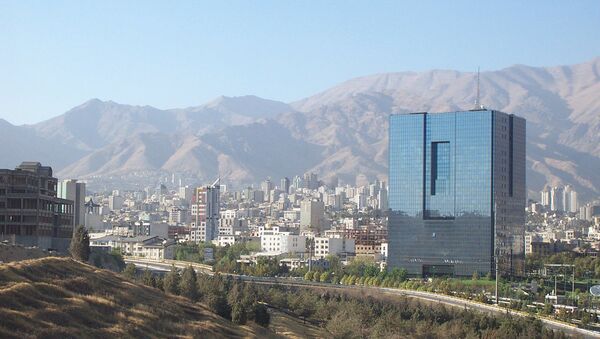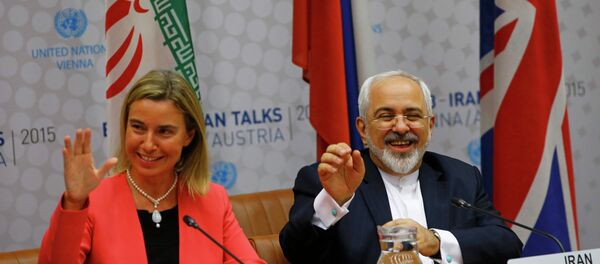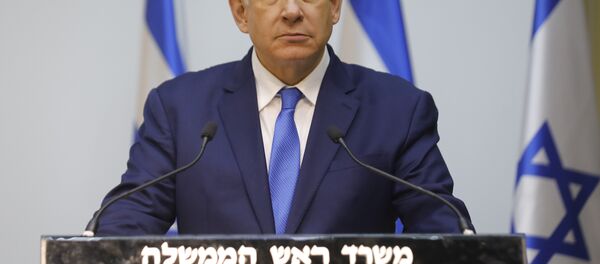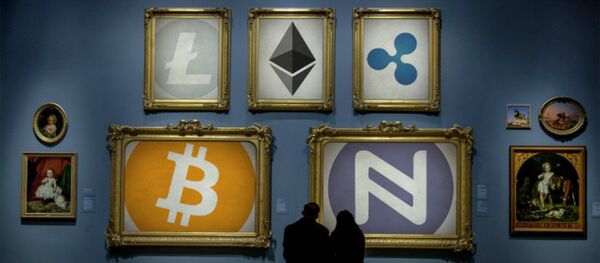"I believe it is merely another Trojan Horse tool in a wider transatlantic ‘good cop/bad cop' production meant to inevitably infiltrate Iran's banking, energy, industrial, defense, security and technological firewall capabilities across various industries," Pye Ian, a Los Angeles-based senior economics analyst and private equity executive, told the Tehran-based Tasnim News Agency Tuesday.
In May 2018, US President Donald Trump unilaterally withdrew from the 2015 Joint Comprehensive Plan of Action (JCPOA), also known as the Iran nuclear deal, claiming that Iran had violated the terms of the agreement by accumulating larger amounts of fissile material and obtaining more refining centrifuges than it's allowed to possess under the terms of the agreement. The US, UK, France, Germany, EU, Russia and China had signed onto the agreement in 2015 to convince Iran to halt its nuclear program in exchange for the ending of international trade sanctions against it.
Since the deal took effect, trade by many countries with Iran has flourished, and when the Trump administration announced last May it was reimposing sanctions on trading with Iran, the remaining signatories hesitated to follow suit. They claimed Iran hadn't violated the terms of the JCPOA. However, as the US pressured the international bank transfer service SWIFT to stop facilitating transactions with Iran, those wishing to trade with the country had to find new routes to do so.
Enter INSTEX, proposed by France, Germany and the United Kingdom earlier this month to provide a non-dollar payment mechanism for trading with Iran. However, the trade it supports is only in those items not under sanction by Washington, such as medicine and foodstuffs, Sputnik noted.
"The US obviously serving as bad cop here, with its EU partners serving as good cops, all meant ultimately to penetrate Iranian financial and production capacities as much as possible under the auspices of facilitating humanitarian goods-related transactions only, including food, medicine and medical equipment," Ian warned Tuesday.
The economics analyst noted that Stuxnet, the virus that destroyed much of the infrastructure of Iran's nuclear program in 2009, reached it targets in the Natanz Uranium Enrichment Facility "via the networks of trusted business partners."
"Early versions of the malware seemed dedicated to intelligence gathering, but then later versions started attacking internal infrastructure," he warned.
Ian's skepticism comes from the virtual consensus reached between Washington and Western Europe on the question of regime change in Venezuela, where both the US and many European countries have recognized self-declared Interim President Juan Guaido's claim to office and denounced elected President Nicolas Maduro's government as illegitimate and undemocratic. Ian noted several distinct comparisons between Iran and Venezuela, including their vast oil wealth and political independence from Washington.
"Ask why the US and EU would necessarily differ in their collective approaches toward Iran and Venezuela, when both nations are deemed as needing ‘regime change' [as soon as possible] by said Atlanticists?," Ian told Tasnim. "It's simply because of assigned tactical differences, yet the same underlying strategy toward both persists."
Many Iranians have also expressed skepticism of the milquetoast provisions of INSTEX, with Iranian Chief Justice Sadeq Amoli Larijani saying on February 4, "Iran will by no means accept these humiliating conditions and will not accede to any demand at the expense of opening a small waterway such as INSTEX," Sputnik reported, citing Tasnim.
Iranian-American author and commentator Hooman Majd also told Sputnik on February 6 that while trade enabled by INSTEX would be welcome, it wouldn't matter much to Iran's economy, which has been heavily hit by the US sanctions.
"My understanding is that the INSTEX channel for trade essentially allows for humanitarian exceptions to the sanctions to be fulfilled," Majd told Sputnik. "Currently most EU companies are unwilling to even trade non-sanctioned goods with Iran (medicine, food), as banks are too wary of dealing with Iran, even for legal transactions."
"Companies that want to bypass US sanctions can do so, but as has been pointed out by leaders in the EU countries, they can't force their companies to do business with Iran, and few companies that have business in the US will risk doing business with Iran," he said.





